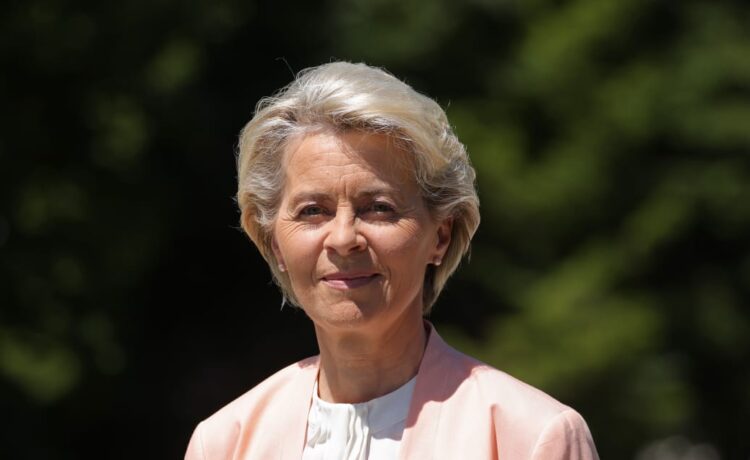So much for the far right taking over Europe.
Investors breathed a sigh of relief when Ursula von der Leyen cruised to a second five-year term as European Commission president, winning a first-ballot majority of the European Parliament July 18.
“We would have expected a more complicated election,” says Davide Oneglia, director of European and global macro at TS Lombard. “The center held quite well.”
What comes next looks less inspiring.
Von der Leyen, a 65-year-old former German defense minister, proved an extraordinary crisis manager in her first term. She prodded the 27-member European Union into decisive and effective action, first to cushion the economy during the Covid pandemic, then to support Ukraine and wean the EU off Russian natural gas imports.
Advertisement – Scroll to Continue
Without such fires to fight, and with its two dominant member states in political disarray, the bloc may revert to its glacial status quo. In Germany, Olaf Scholz’s fractious coalition government looks to be limping toward an electoral wipeout next year. In France, President Emmanuel Macron is hamstrung after his snap election yielded a fractured legislature.
The most effective change in the new European Parliament isn’t the rise of the far right, but the decline of the Greens, who slipped from 70 to 53 seats in the 720-member body. That reflects the public’s desire to tap the brakes on Von der Leyen’s Green Deal, a would-be sprint toward carbon neutrality.
“The emphasis is going to shift to how to reduce emissions while maintaining economic growth,” says Eoin Drea, senior researcher at the Wilfried Martens Centre for European Studies.
Advertisement – Scroll to Continue
Hard renewable energy targets are giving way to fuzzier rhetoric about increasing Europe’s competitiveness, somehow. Brussels is again buzzing with talk of a “capital markets union,” harmonizing the crazy quilt of national financial regulations and taxation. Investors are skeptical.
“We have been talking about capital markets union for decades, but haven’t gotten too far,” says Azad Zangana, senior European economist and strategist at
Von der Leyen, faithful to her ministerial roots, has also pledged a “true European defense union,” and will likely appoint the bloc’s first defense minister. The collective EU has sent more money to Ukraine than the U.S. But a sustained push to NATO’s 2%-of-gross-domestic-product military spending target still looks out of reach for key member states like Germany and Spain.
Advertisement – Scroll to Continue
Donald Trump returning to the White House might change that, Oneglia speculates. “Trump could be the shock that European politicians need to move,” he says.
The shock that may boost Europe more immediately is the precipitous selloff in tech stocks, which is dragging down U.S. and (some) Asian markets. Value-oriented Europe looks safe by comparison. The continent’s Stoxx 600 index trades at an average price/earnings ratio of 15, compared with 25 for the S&P 500.
Europe boasts two of the hottest names in pharmaceuticals these days, notes Andrew Clifton, an equities portfolio specialist at
:
maker of the Ozempic/Wegovy diabetes/weight loss remedies, and
whose blockbusters include Farxiga for diabetes and lung cancer treatment Tagrisso. He is also impressed by a range of European banks that have “gotten their houses in order,” including Netherlands-based
and Italy’s
“Could European stocks outperform? Yes, they could,” Schroders’ Zangana concludes. “Markets are cheap and economies are poised for a rebound.”
Just don’t hold your breath on leadership from Brussels.













